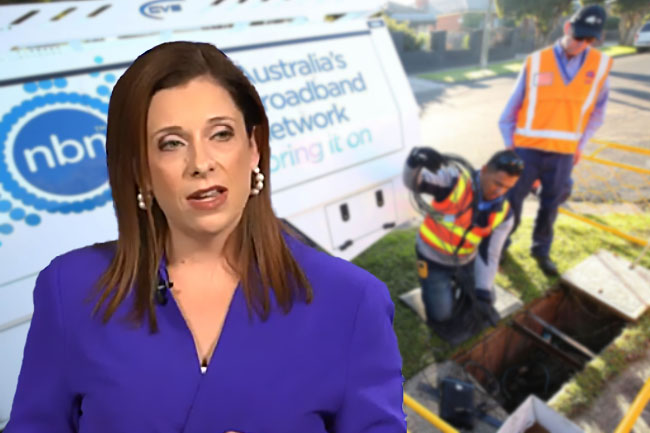Smart devices are ready to flood the energy market, forcing prices down, writes Paul Budde.
OVER THE LAST decade there have been excellent reports from the Australian Energy Market Commission (AEMC) as well as from various industry bodies on reforming the energy market.
The reports state this should be done through opening the market up to modernisation, more competition, better interoperability arrangements and better levels of transparency, all based on new communication technologies that have come available.
This would have a significant impact on lowering the energy costs for both residents and businesses.
However, most if not all those reports have ended up on shelves gathering dust, thanks to the ineptitude and boycotts from politicians.
So, when now a decade on yet another excellent report from AEMC arrives, there is lot of scepticism as to whether the Government will finally stop obstructing new initiatives because of its conservative, pro-coal ideology and start working on creating a smarter (and cheaper) energy market.
There has been great industry, as well as consumer, frustration about the lack of vision, strategy and action in relation to our energy market from the Government.
Back in 2001, I brought Australian electricity companies together in an initiative called UtiliTel. The aim was to use the extensive infrastructure from these utilities to break through the stranglehold that Telstra had at that time on the telecoms market. Only a few years earlier Telstra had mentioned that it didn’t believe that the market for ADSL would be more than one million subscribers. ISDN was at that time the product that it still tried to protect.
There were a range of great broadband initiatives from the energy companies among others PowerTel initiated by Energy Australia, Bright from Western Power and UEComm from United Energy. Furthermore, some of the transmission companies provided long haul telecoms access.
By 2007 a major shift occurred in the electricity market as the utilities were confronted with their very large carbon footprint. With pending government action from the then-incoming Labor Government, companies started to make plans on how to best reduce their footprint. They were looking at smart telecoms technologies to make this happen.
The shift resulted in the utilisation of their newly gained telecoms capacity internally in order to build smarter operations aimed at lowering their carbon footprint. UtiliTel changed their name to "Smart Grid Australia" and later, reflecting the boom in renewables, "Smart Energy Australia". The utilities were well and truly ready to face the new environment but they depended on government legislation and regulation.
However, these smart energy investments were not seen by the Government as core to their business and under the current legislative frameworks, there are a range of impediments that stops them from fully embracing smart energy developments. Again, the reasons are based on political ideology as smart energy would recognise a far greater role for renewable energy in the energy system.
This new report from AEMC predicts it is inevitable that smart devices and virtual power plants are going to create a two-sided energy market, allowing consumers to participate in the grid, enabling large commercial and industrial users to sell unused demand directly into the wholesale market for the first time.
Like suggestions made in previous reports both from the industry and AEMC, I hope this one will not just be added to those already gathering dust on the Canberra shelves. Instead of showing vision and making the necessary transformative changes the government has so far resorted to bandage solutions.
As Professor Ross Garnaut mentioned in his recent paper, a national smart energy policy will lead to high quality, sustainable jobs and will easily outstrip the jobs needed in the coal industry, it could transform Australia’s economy to a low-cost energy one (ideal for steel and aluminium production) and could substantially make energy cheaper for both residents and businesses.
The report says that, as a result of the massive changes, Australia needs to prepare for implementation of a two-sided national energy market. This will be facilitated by smart technologies that allows for both a much better use of renewables changes as well as a more efficient energy distribution operation.
The Commission foresees a market where consumers are rewarded for buying and selling energy in real-time, and where industry profits by re-selling excess energy back to the wholesaler.
Furthermore, growing consumer demand will impact the system through household battery storage, pool pumps, air conditioners and electric vehicles. Smart devices will enable them to consume power off-peak and export power back to the grid when it is cost-effective.
The Commission has also published draft recommendations that would see commercial energy users paid as if they were generators for returning unwanted power to the grid.
They, in fact, envisage a system where decisions on power consumption would be valued digitally through devices connected to the Internet and remotely controlled.
Price rates would automatically switch a household or business power plant from grid import to export and back again at the lowest possible cost.
As a side note, this will also put further pressure on the quality and capacity requirements of the struggling NBN.
Hopefully, the Government will finally wake up to the fact that we do need a modern energy market that allows us to benefit from all these new developments and provide the essential legislation and regulations. This would allow everybody to go on with their job to make it happen.
Paul Budde is managing director of Paul Budde Consulting, an independent telecommunications research and consultancy organisation. You can follow Paul on Twitter @PaulBudde.
 This work is licensed under a Creative Commons Attribution-NonCommercial-NoDerivs 3.0 Australia License
This work is licensed under a Creative Commons Attribution-NonCommercial-NoDerivs 3.0 Australia License
Support independent journalism Subscribe to IA.











